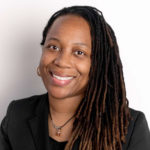Former Virginia Gov. Terry McAuliffe (D) and Republican nominee Glenn Youngkin remain locked in a tight contest for governor of Virginia, a University of Mary Washington statewide survey shows. The poll, conducted by Research America Inc. Sept. 7-13, included 1,000 Virginia adults. Of those, 885 were registered voters and 528 were likely voters.
Among likely voters, 48 percent favored Youngkin and 43 percent backed McAuliffe.
Liberation Party candidate Princess Blanding received the support of 2 percent of likely voters, with others undecided.
Among registered voters in the survey, McAuliffe had the support of 46 percent, compared to 41 percent for Youngkin. In the entire survey, 43 percent backed McAuliffe compared to 38 percent favoring Youngkin. Blanding received the support of 2 percent of registered voters and among all respondents.
The differences between the two major party candidates among all adults, among registered voters, and among likely voters are all within the margins of error, meaning neither candidate has a clear lead.
“To borrow from Mark Twain, the reports of the end of Virginia’s status as a swing state are greatly exaggerated,” said Stephen J. Farnsworth, professor of political science at the University of Mary Washington and director of UMW’s Center for Leadership and Media Studies. “The large number of undecided voters at this stage demonstrates that either major party candidate can become the next governor of Virginia.”
Ralph Northam (D), the current governor, is ineligible to run for re-election this year because of term limits. McAuliffe, who held the post from 2014 to 2018, waited four years to vie for office again.
The current close contest for governor stands in sharp contrast to Northam’s election in 2017, which he won by nine points, and to the 10-point margin that then-candidate Joe Biden received in Virginia over President Donald Trump in last year’s contest for the White House. Mark Warner was re-elected to the U.S. Senate last November by a 12-point margin. Virginia’s other U.S. Senator, Tim Kaine (D), won his most recent election with a 16-point margin in 2018.
“Right now, this year’s contest for governor looks to be the closest statewide election in years,” Farnsworth said. “This election looks very different from those of the past four years, when Democrats could win by substantial margins by just focusing the electorate on President Trump. He is not president anymore, and recent Democratic advantages in statewide contests seem to have departed with him.”
The survey also revealed very close contests for the other statewide offices this year. In the race for lieutenant governor, Winsome Sears (R) was supported by 47 percent of likely voters, compared to 41 percent for Democratic candidate Hala Ayala. In the race for attorney general, incumbent Mark Herring (D) had the support of 42 percent, compared to 46 percent for Jason Miyares, a Republican. The survey results from both of these contests are also within the margin of error.
Among all respondents, 49 percent thought the nation was moving in the wrong direction, versus only 23 percent saying it was moving in the right direction. For the Commonwealth, 39 percent said Virginia was moving in the wrong direction, compared to 32 percent who said it was moving in the right direction. Forty-eight percent of those surveyed disapproved of President Biden’s job performance, as compared to 44 percent who approved. For Northam, the approve/disapprove numbers were tied at 42 percent each.
“This is an electorate in a very foul mood,” Farnsworth said. “We shouldn’t be surprised. COVID has created the biggest health care and economic shocks to the world in decades and we prematurely thought the crises were over. So it is no wonder that voters are expressing high levels of frustration.”
Regional differences in candidate preference appear to be less distinct in vote-rich Northern Virginia this cycle. Forty-eight percent of likely voters favored McAuliffe, while Youngkin had the support of 45 percent – far from the double-digit advantage Democrats usually enjoy in the Commonwealth’s most populous region.
In the western part of Virginia, a traditionally Republican region, Youngkin is strongly supported: 62 percent of likely voters in that largely rural region favored him, as compared to 27 percent favoring McAuliffe.
The survey revealed a gender gap among likely voters. Forty-eight percent of women favored McAuliffe, while 43 percent favored Youngkin. Fifty-two percent of men favored Youngkin and 39 percent supported McAuliffe.
Among likely voters, more than three-quarters of African Americans and more than two-thirds of Latinos supported McAuliffe, while a majority of whites favored Youngkin.
Survey Information:
The University of Mary Washington’s Virginia Survey Fall 2021 was conducted by Research America Inc. September 7-13, 2021. The total sample included 1,000 Virginia residents, with 885 registered voters and 528 likely voters. Part of the sample (600) was contacted by phone (80 percent cell and 20 percent landline), and part of the sample (400) was contacted online. All interviews were in English. Statistical results are weighted to correct known demographic discrepancies, including age, gender and race/ethnicity. The margin of error on the total sample is ±3.1%. The margin of error on the likely voters portion of the sample is ±4.1%.
For further survey results, see Topline.






















